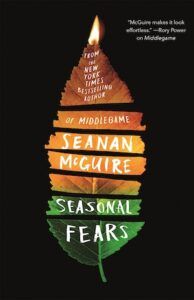A Mood Reader’s Misadventures With Library Holds
Not too long ago, something strange and rather extraordinary happened to me: I opened Libby to place a hold on a book I wanted to read (The Ex Talk, recommended by a friend); my library had a “skip-the-line” copy available, which means I was able to, well, skip the line and borrow the ebook for a reduced lending period (seven days instead of three weeks); I borrowed the book, read it, and returned it before the loan was up. I am not exaggerating when I say nothing like this has never happened to me before.
When I say I’m a mood reader, it’s a nice way of saying that I have absolutely no self-discipline whatsoever. Now, I don’t think that’s necessarily a bad thing. But it does tend to result in an awful lot of half-read books, because I get bored or distracted and forget to finish them, or because…well, let me explain my relationship to library books, which is how I do 90% of my reading.
Here’s what usually happens.
1. I hear about a book.
I know that’s vague, but there are so many ways I might hear about a book! Someone might mention it to me directly — my friend (and former Rioter) Shiri might text me “Hey, you should read The Witch King! Gabe might love it but there’s some stuff you may want to screen.” (Gabe is my 12-year-old son.) Or I might be copy editing a Book Riot must-read list and see a title — say, Last Night at the Telegraph Club — for the 40th time and think Yes, it is time, I must read this. Or maybe I am just scrolling Twitter and see a title that looks interesting.
2. I open up Libby and place a hold.
The wait is usually somewhere in the eight to ten weeks range. Sometimes I have reached my max number of holds (15) and I remove one that I can’t remember why I added it. Sometimes my library doesn’t have it available (usually only for brand new releases) and I have to hope I will remember to look for it later. When this happens, I open up the search function and look at the list of my past searches in case any of them were unavailable; if so, I check again and place a hold on them if applicable.
3. Eight to ten weeks go by.
During this time I might read whatever books I have checked out on Libby (see step 5 below), but I probably watch a lot of TV.
4. Libby: “Your hold is in!”
Me: I have never heard of this book in my life.
Sadly, this really is (most often) my reaction. By the time my holds come in, I do not remember why I placed them, what the book is, or how to read. (Maybe not that last one.) I am currently reading a book about which I remember nothing, and cannot tell if it is satire or sincere! I could google to find out, but I am choosing not to.
5. I read, maybe.
The thing about my Kindle is it’s totally full of books I own, ARCs I’ve downloaded, and Libby books, and there is no real way to distinguish between them at a glance. As previously mentioned, I am a mood reader, so I will open whatever book A. is near the top of the list and therefore visible (if I can’t see it, it doesn’t exist), and B. sounds appealing at the moment.
Sometimes I choose a library book. Usually I find out that the book I am reading is a library book when…
6. Libby automatically returns it to my library on its due date.
Now, on the one hand this is a huge improvement over the way I used the library in days past. I would borrow a huge stack of physical books, read absolutely none of them, and owe the library upward of $30 in late fees because I returned none of them on time, hoping to at least finish one. My library has since eliminated fines, but it was a real problem for me for a while, so I am grateful for the auto-return. Except…
7. I re-add the book to my holds shelf.
The whole damn thing starts over again. Sigh. Here’s hoping I remember what the book is and why I was reading it whenever it shows up on my loans shelf again!


إرسال تعليق
0 تعليقات